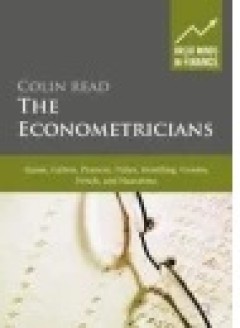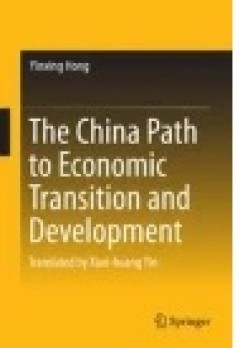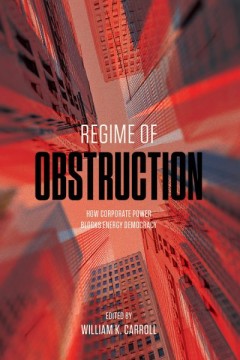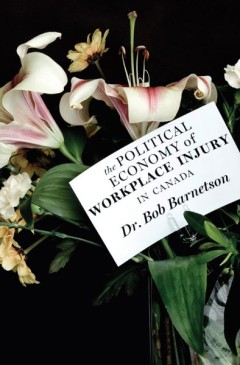Filter by

The Econometricians
This is the seventh book in a series of discussions about the great minds in the history and theory of finance. While the series addresses the contributions of scholars in our understanding of financial decisions and markets, this seventh book describes how econometrics developed and how its underlying assumptions created the underpinning of much of modern financial theory. The author shows tha…
- Edition
- -
- ISBN/ISSN
- 978-1-137-34137-2
- Collation
- XXI, 261
- Series Title
- Great Minds in Finance
- Call Number
- -

Canada’s Labour Market Training System
How does the current labour market training system function and whose interests does it serve? In this introductory textbook, Bob Barnetson wades into the debate between workers and employers, and governments and economists to investigate the ways in which labour power is produced and reproduced in Canadian society. After sifting through the facts and interpretations of social scientists and go…
- Edition
- -
- ISBN/ISSN
- 9781771992411.01
- Collation
- -
- Series Title
- OPEL (Open Paths to Enriched Learning)
- Call Number
- 6 x 9, 204 pages

Local Content Policies in Resource-rich Countries
This book analyses the role of local content (LC) policy in the economic development of five resource-rich countries: Brazil, Kazakhstan, Norway, Russia and the UK. The authors situate LC policy within a framework of sustainability in the form of industrial diversification and innovation-led growth, and examine how effective LC policies are in facilitating sectoral and economy-wide catching up.…
- Edition
- -
- ISBN/ISSN
- 978-1-137-44786-9
- Collation
- -
- Series Title
- -
- Call Number
- -

The China Path to Economic Transition and Development
This book by the renowned Chinese scholar Dr. Yinxing Hong provides the reader with a perceptive analysis of what has worked in China’s development model. Over the past 30 years, China has experienced a remarkable economic rise, but it now faces the challenge of switching the drivers of this economic growth, which have proven so successful. The path has not been an easy one, and many challeng…
- Edition
- -
- ISBN/ISSN
- 978-981-287-843-4
- Collation
- XXIII, 234
- Series Title
- -
- Call Number
- -

The Case of State Liability
In light of the 20th anniversary of the ruling in Francovich, Michael Haba analyzes the principle of Member State Liability, which provides a right to damages whenever EU law is breached by Member States. His research ascertains that the doctrine evolved through three stages before becoming the unified approach that it is today. The author emphasizes that the principle’s base lay at the outse…
- Edition
- -
- ISBN/ISSN
- 978-3-658-08080-8
- Collation
- XVII, 141
- Series Title
- BestMasters
- Call Number
- -

The Call Up to the Majors
This book explores the unique relationships between professional baseball teams and the unique ways professional baseball leagues are organized in North America with a primary focus on how proximity can and does impact consumer demand. Perhaps more than any other matter that arises in the business of baseball, proximity to other professional baseball teams is a concern that has uniquely shaped …
- Edition
- -
- ISBN/ISSN
- 978-1-4614-8924-5
- Collation
- XX, 121
- Series Title
- Sports Economics, Management and Policy
- Call Number
- -

Social Democracy After the Cold War
Offering a comparative look at social democratic experience since the Cold War, the volume examines countries where social democracy has long been an influential political force—Sweden, Germany, Britain, and Australia—while also considering the history of Canada’s NDP and the emergence of New Left parties in Germany and the province of Québec. The case studies point to a social democracy…
- Edition
- -
- ISBN/ISSN
- 978-1-926836-87-4
- Collation
- -
- Series Title
- -
- Call Number
- 340 pages

Regime of Obstruction How Corporate Power Blocks Energy Democracy
Contributions by Laurie Adkin, Angele Alook, Clifford Atleo, Emilia Belliveau-Thompson, John Bermingham, Paul Bowles, Gwendolyn Blue, Shannon Daub, Jessica Dempsey, Emily Eaton, Chuka Ejeckam, Simon Enoch, Nick Graham, Shane Gunster, Mark Hudson, Jouke Huizer, Ian Hussey, Emma Jackson, Michael Lang, James Lawson, Marc Lee, Fiona MacPhail, Alicia Massie, Kevin McCartney, Bob Neubauer, Eric Pinea…
- Edition
- -
- ISBN/ISSN
- 9781771992893.01
- Collation
- -
- Series Title
- -
- Call Number
- 6 x 9, 528 pages

Political Economy of Workplace Injury in Canada
Workplace injuries are common, avoidable, and unacceptable. The Political Economy of Workplace Injury in Canada reveals how employers and governments engage in ineffective injury prevention efforts, intervening only when necessary to maintain the standard legitimacy. Barnetson sheds light on this faulty system, highlighting the way in which employers create dangerous work environments while the…
- Edition
- -
- ISBN/ISSN
- 9781926836003.01
- Collation
- -
- Series Title
- Fabriks: Studies in the Working Class
- Call Number
- 284 pages

Alberta Oil and the Decline of Democracy in Canada
In probing the impact of Alberta’s powerful oil lobby on the health of democracy in the province, contributors to the volume engage with an ongoing discussion of the erosion of political liberalism in the West. In addition to examining energy policy and issues of government accountability in Alberta, they explore the ramifications of oil dependence in areas such as Aboriginal rights, environm…
- Edition
- -
- ISBN/ISSN
- 9781771990301
- Collation
- -
- Series Title
- -
- Call Number
- -
 Computer Science, Information & General Works
Computer Science, Information & General Works  Philosophy & Psychology
Philosophy & Psychology  Religion
Religion  Social Sciences
Social Sciences  Language
Language  Pure Science
Pure Science  Applied Sciences
Applied Sciences  Art & Recreation
Art & Recreation  Literature
Literature  History & Geography
History & Geography